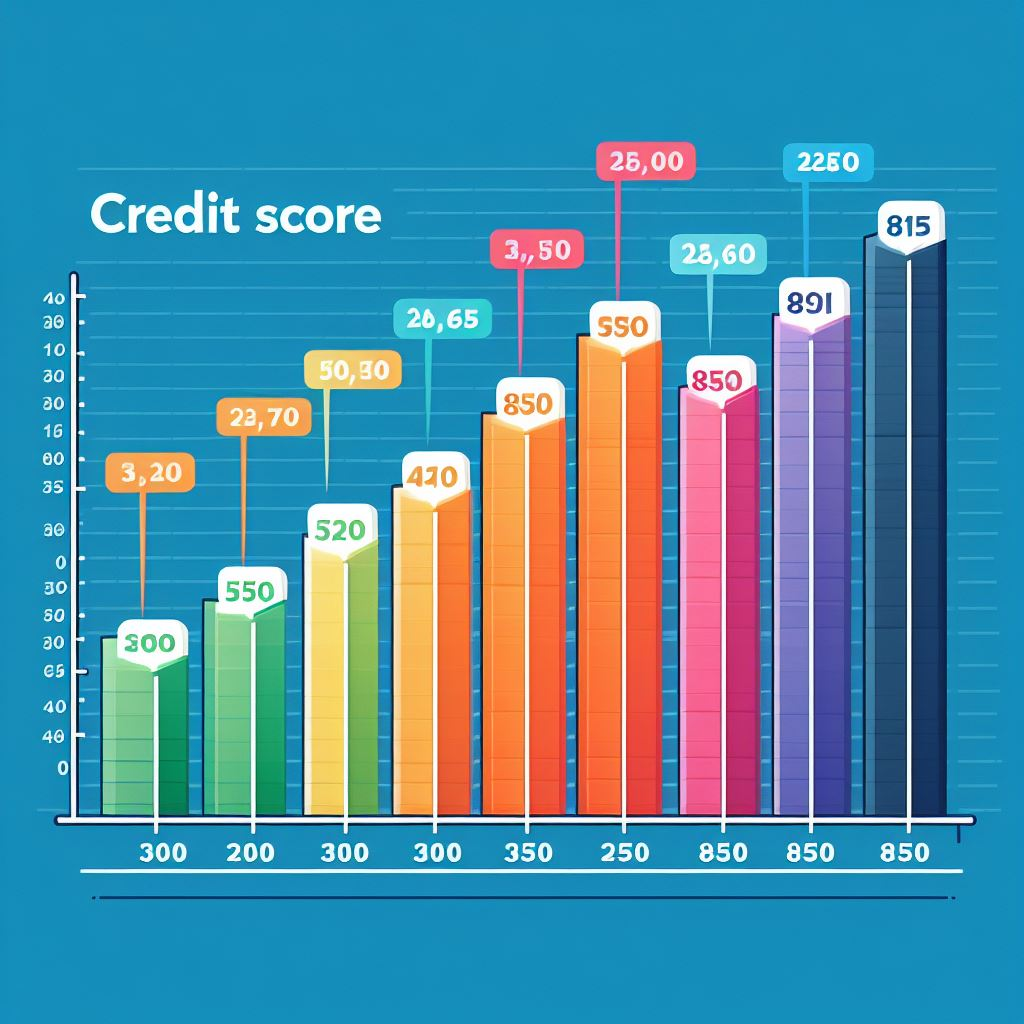Your credit score—these crucial two words significantly impact your financial health. Achieving a high credit score opens doors to numerous benefits, including lower loan interest rates, attractive insurance offers, access to personal loans, and the ability to secure your dream home, car, or dream apartment.
Conversely, a low credit score can feel like a burden, hindering your financial progress and opportunities. Improving your credit score is essential for financial freedom and success.
Struggling with financial frustration? This guide is your solution to improving your credit score significantly.
Discover the essential factors that impact your credit rating and follow our practical steps to potentially increase your score by 100 points or more. Learn how to boost your credit score effectively!
- Related Reading:
- Download our free E-book today and start learning how to create wealth for yourself!
- 11 Best Apps That Pay You Real Money in 2024
- Can You Still Afford to Buy a Home in 2024? Find Out Now!
Demystifying Your Credit Score: The Credit Bureaus and FICO

To improve your credit score, it’s essential to understand the key components and the major players involved in its calculation. The United States hosts three primary credit bureaus: Equifax, Experian, and TransUnion. These bureaus monitor your financial activities, creating comprehensive reports.
These reports are crucial for lenders when assessing your creditworthiness. Understanding how these credit bureaus work can help you manage your credit score effectively.
Understanding your credit score is essential, and at the core of this score is the FICO score, developed by the Fair Isaac Corporation. Ranging from 300 to 850, a higher FICO score indicates better financial trustworthiness.
The calculation of the FICO score involves several key factors: your payment history, the total amount owed, the length of your credit history, any new credit, and the types of credit you use.
By getting familiar with both the credit bureaus and how the FICO scoring model works, you’re taking an important step toward improving your credit score.
Knowing these elements can help you manage and potentially increase your credit score, making you more appealing to lenders.
The Credit Score Breakdown: What Matters Most?
FICO scores consider several factors, but here are the big five:
- Payment History (35%): Maintaining an impeccable payment history is crucial for a healthy credit score. Consistent on-time payments are highly valued, as they significantly enhance your creditworthiness. Conversely, missed payments or any form of delinquency can drastically lower your credit score. It’s essential to prioritize timely payments to ensure a strong financial standing.
- Credit Utilization Ratio (30%): This is about your credit utilization ratio, which is the percentage of your available credit that you’re using. For better financial health and to appeal to lenders, it’s recommended to keep this ratio under 30%. Utilizing all of your credit limit, or maxing out your credit cards, signals a warning to lenders. Managing your credit utilization effectively is key to maintaining good credit scores.
- Length of Credit History (15%): Maintaining a long history of responsible credit management boosts your credit score. Keeping your oldest credit accounts active is beneficial, even if you rarely use them. This strategy helps demonstrate a stable and reliable credit history, an essential factor in improving your credit rating.
- New Credit (10%): To avoid lowering your credit score, it’s crucial to space out your credit applications instead of applying for multiple credit lines in a short period. Only submit credit applications when necessary. This strategy helps maintain a healthy credit score, making it easier to manage your finances effectively.
- Credit Mix (10%): To enhance your credit score, having a diverse credit portfolio, including credit cards and installment loans such as car loans is beneficial. This diversity shows your capability to manage various forms of debt efficiently.
- Related Reading
- The Cost of Living Crisis: What You Need to Know
- Facing Foreclosure? How to Sell Your Home Fast
- Smart Budgeting on a Small Budget
Actionable Steps to Boost Your Score

Now that you clearly understand credit card debt and how it affects your credit score, it’s time to focus on improving your financial health. Learn how to boost your credit score by an impressive 100 points with our expert tips and strategies.
1. Tame the Payment Monster:
- Pay Bills on Time, Every Time: Enable automatic bill payments to prevent late fees and protect your credit score. Avoiding missed payments is crucial as even one delay can negatively affect your credit rating.
- Negotiate Delinquencies: Dealing with overdue accounts? It’s crucial to reach out to your creditors immediately. Discuss and negotiate a manageable payment plan to update your accounts. This proactive approach not only helps in managing debts efficiently but also improves your financial standing.
2. Manage Your Credit Utilization Like a Pro:
- Pay Down Existing Debt: Lower your credit card utilization ratio by reducing your total balances. Focus on eliminating debt on high-interest cards first for better financial health. This strategy not only improves your credit score but also saves you money on interest payments over time.
- Strategize Your Spending: Avoid maxing out your credit cards! For the best chance at improving your credit score, it’s recommended to maintain your credit utilization under 30%. Managing your credit wisely not only enhances your creditworthiness but also positions you better for financial opportunities. Keeping credit utilization low is a key strategy for credit score improvement.
3. Cultivate a Long and Healthy Credit History:
- Don’t Close Old Accounts (Even Unused Ones): The length of your credit history plays a crucial role in your credit score. Maintaining older credit accounts, even if you use them sparingly, can significantly improve your credit rating. It’s important to understand how credit history impacts your score and the benefits of keeping long-standing accounts active for a healthier credit report.
- Become an Authorized User (Carefully): Consider boosting your credit score by becoming an authorized user on a family member or friend’s account with excellent credit. This strategy leverages their positive payment history to enhance your credit rating. However, it’s crucial to remember that any negative financial actions on their part could also impact you adversely.
4. Apply for New Credit Strategically:
- Space Out Applications: Avoid multiple credit applications in a short period. Every application results in a hard inquiry, potentially reducing your credit score slightly. Maintaining a higher credit score involves minimizing hard inquiries to protect your financial health.
- Only Apply When Necessary: Before applying for a credit card, think carefully about whether you need it. Evaluate the long-term effects on your credit score and credit utilization ratio. Making smart decisions about credit card applications can help maintain a healthy financial status.
5. Diversify Your Credit Portfolio:
- Consider an Installment Loan: For those with a limited credit history, considering installment loans such as student loans or auto loans can be beneficial. Making payments on time and managing these loans responsibly showcases your capability to manage various forms of credit, which can improve your credit score.
Bonus Tip: Monitor Your Credit Report Regularly:
- Obtain Free Credit Reports: Get your free annual credit report from each bureau and review it for errors. Immediately dispute any inaccuracies to maintain your credit health.
- Consider Credit Monitoring Services: These credit monitoring services offer valuable tools to keep an eye on your credit score, providing timely updates and alerts for any changes. This ensures you’re always informed about your financial health and can take action when necessary.
- Related Reading:
- 5 Under-the-Radar AI Gigs for 2024
- How to Profit During the Presidential Race
- How to Protect Your Money Against Inflation
The Long Haul: Maintaining Your Baller Credit Score

Building a strong credit score is a journey that requires time and dedication. To improve your financial health and achieve financial freedom, follow these essential tips to maintain and enhance your credit score. This guide offers practical advice to ensure you stay on the right track towards a healthy credit history.
- Stay Vigilant with Payments: Avoid reverting to old habits. Ensure you maintain timely debt payments. Stay on track with your financial commitments and improve your credit score by consistently making payments on time for all your debts.
- Monitor Your Utilization: Monitor your credit card balances closely and modify your spending habits to maintain a utilization ratio below 30%. Staying under this crucial threshold is key to managing your finances effectively and improving your credit score.
- Review Your Credit Reports Regularly: Immediately challenge any inaccuracies in your report. Incorrect data can harm your credit score. It’s crucial to monitor your credit report regularly for errors and take swift action to correct them, ensuring your financial health remains intact.
- Embrace the Power of Review: Think about posting positive reviews for trustworthy lenders. Although it’s not a direct factor in your credit score, it showcases good credit habits to future lenders. This action can help you appear more creditworthy in their eyes.
Beyond the Score: Building a Strong Financial Foundation
A high credit score is crucial for financial wellness, but it’s only part of achieving financial stability. Alongside maintaining a good credit score, creating a solid financial base is key. To enhance your financial health, consider these strategies for managing your loan effectively:
- Create a Budget: Monitor your income and expenses to live within your budget. Utilize popular budgeting apps or design a personal finance spreadsheet to effectively control your finances.
- Build an Emergency Fund: To ensure financial security, it’s crucial to build an emergency fund covering 3-6 months of living expenses. This strategy helps safeguard against unexpected financial emergencies and reduces dependence on credit cards. Establishing a solid emergency savings fund is a key step in personal financial planning.
- Invest in Your Future: Start managing your debt and build up your emergency savings first. Then, think about investing for long-term goals, such as retirement planning. This approach ensures financial stability and smart wealth growth over time.
Final Thoughts: From Budget to Baller – You Got This!
Boosting your credit score is a long-term journey, not a quick race. Adopting responsible financial habits and following practical tips can steadily improve your credit rating.
A higher credit score unlocks opportunities for a more secure financial future. Taking charge, staying disciplined, and transitioning from being budget-savvy to financially strong is key. Aim to become the ideal customer for top-tier credit card companies by enhancing your credit score!
Here are some recommended credit score tools:
- Credit Karma: A free credit monitoring service that provides credit scores and reports from TransUnion.
- Credit Sesame: A free credit monitoring service that provides credit scores and reports from TransUnion.
- Experian Boost: A free credit monitoring service that provides credit scores and reports from Experian.
- FICO: A paid credit monitoring service that provides credit scores and reports from all three major credit bureaus.
Note: The content of this blog post is for informational purposes only and should not be considered financial advice. Always consult a financial advisor or credit expert for personalized advice.
- Related Reading:
- The Cost of Living Crisis: What You Need to Know
- How to Use Data to Improve Your Financial Life
- How to Protect Your Money Against Inflation














